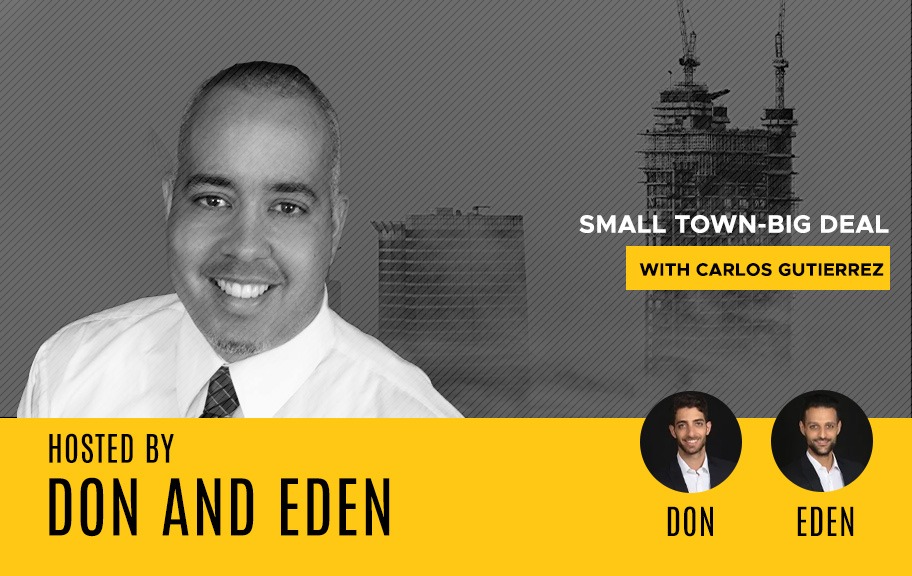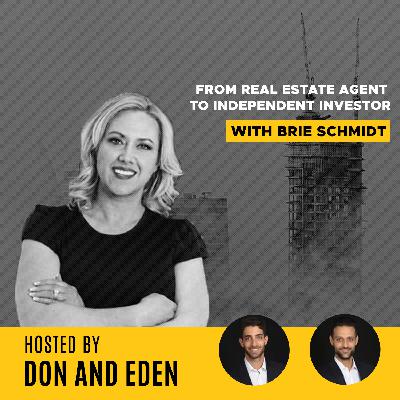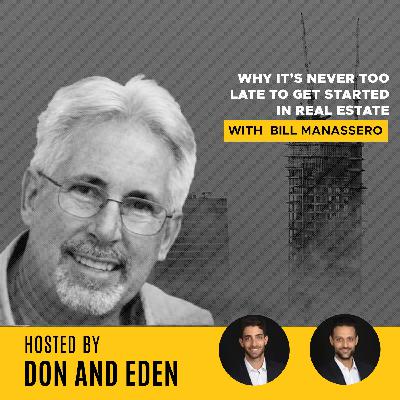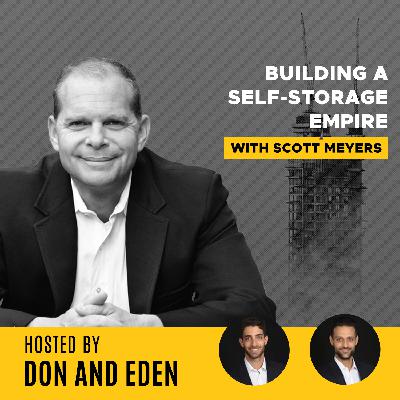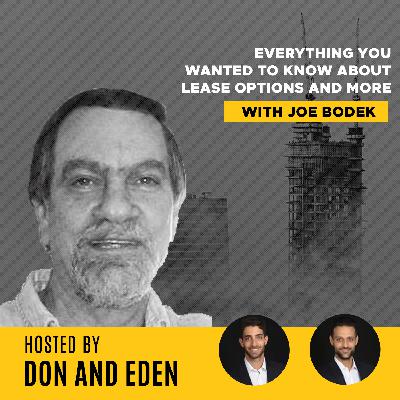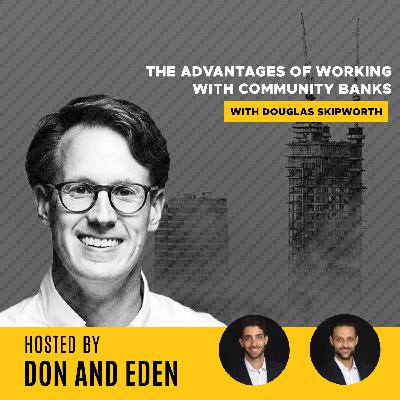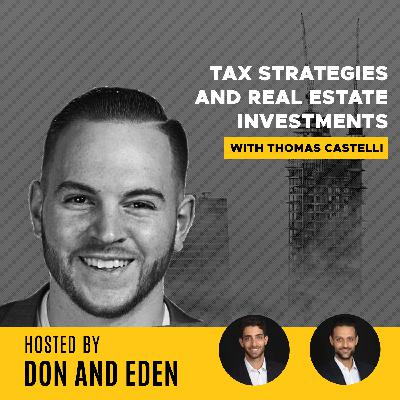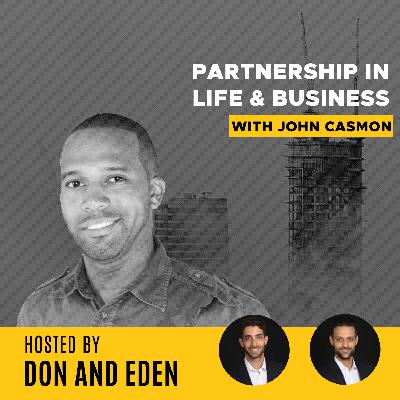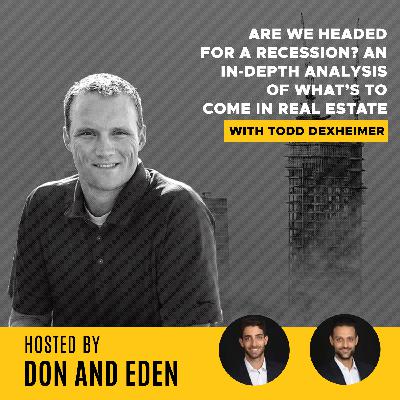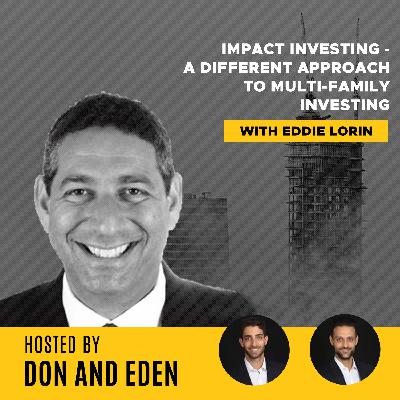DE 24: The Importance of Knowing your Partners & Working Your Strategy with Benjamin Inman
Description
In today’s episode, we have the pleasure of having Benjamin Inman, founder of Inman Equities. Benjamin brings over 20 years of experience and has become successful via hard work and strategy. He has a really good reputation in the real estate market due to hard work, consistency, and persistence.
Benjamin touches on his beginnings into the wonderful world of real estate, his lesson on how important it is to have deals in writing and the difference between the two markets he’s involved in like buying a property of over 200 units and buying properties on a smaller scale. He also discusses the importance of being involved from start to finish with the deal on the table along with the other partners or investors involved.
Highlights:
- Benjamin’s Career Briefs And An Unexpected Experience About His Very First Deal
- His Tips And Tricks On How To Become Successful
- How He Grew His Reputation Within The Southeast And Beyond.
- Details About How, When And Who To Chose As A Business Partner
- Never Miss Any Details In The Contract Agreement
Connect with Benjamin:
Email: binman@inmanequities.com
Phone: 615-513-3088
Linkedin: @inmanequities
Facebook: @inmanequities
Instagram: @inmanequities
Twitter: @inmanequities
-------------------------------------------------------
TRANSCRIPTION:
Intro: Hey guys! I hope you’re ready for today’s episode. Today I’m going to host Benjamin Inman. Benjamin had been involved in multi-family in the past 20 years and worked and learned under the famous real-estate guru and tycoon Grant Cardone. In this episode, we will talk about the process of understanding that you can do this by yourself and use your connections and knowledge that you’ve acquired during the years. And also, for the first time on the show, we’ll have an investor that invests in institutional properties that are over 200 units. So, these are the bigger deals out there. Today’s episode is very informative, so stay tuned. And on another note, I’d like to remind you to check our website donandeden.com where you can find ways to contact us and connect with us and learn more about who we are, our deals and so on. So yeah, let’s get started and we have a lot to talk about.
Intro: Welcome to the Real Estate Investing Podcast with Don and Eden where we cover all aspects of real estate investing with special attention to multi-family apartment buildings and off-market strategies.
Don: Hey Benjamin! Welcome to the show. How’re you doing today?
Benjamin: I’m good. How are you doing?
Don: I’m doing just fine. So, I know you’ve been doing a lot of work, you’ve been buying properties in the market that everybody’s saying that it’s hard to buy but you’re still finding good deals, and I know you’re buying institutional properties over 200 units. So, I would like for you to tell our audience a little bit about who you are, what you do and how you got into real estate.
Benjamin: To start, I appreciate you for having me on. Always enjoy doing this type of thing. I started my career 18 years ago. Really starting to ground up I was so eager just to get in the business that I actually started as a landscape architect, doing single-family homes and then really just put myself out there because I was always interested in the multi-family space and got introduced to a developer down the Miami, offered a job to me as his corporate landscape architect and I was off to the races. Once I was there, I knew that it was a good opportunity for me. I was always asking a bunch of questions and surrounded myself with the right people in the firm and, so really just utilized that to the best of my abilities just kept growing and building on that from the time I left there until I went to the next shop and then from there just kept building and adding on. Just about all knowledge-based and then 2 years ago I left the last two investors I was working for and started my shop and never looked back. So, we typically have two different focuses. All the stuff that we buy, they are all in the multi-family space. So we have an institutional arm and we have a smaller bucket that we acquire 50, 76 units, 44 unit properties in and we have the institutional side bucket to where we buy 450 unit portfolios at one time and I do each of those with different partners so I have a partner for the big stuff and have partners for the smaller stuff. That’s our way of diversifying. The big deals are good in their way, the small deals, they are good in their way. The small deal’s cash load typically a little bit better than the big stuff. So that’s really in a nutshell, our focus and we pretty much focus throughout the southeast.
Don: So, I know you are buying large properties and small properties and you’ve been doing that for the past two years but your career had spawned for a lot more. So, I would think that you working with big investors, I know you’ve worked with Grant Cardone, Cardone Capital and I’m from Florida so it’s impossible not to know who Grant Cardone is if you live in. So, I know you’ve worked with these investors. So how does working with people of that caliber helped you understand the market and got you to the place where you are at right now?
Benjamin: You have to understand their way of thinking because you can ask ten investors what the criteria are and you may get ten very different answers. Each deal that you decide that identified to take down, you pretty much know which of those deals or you should know which of those deals fit the personality box for your potential partner or partners. And so, I kind of cherry-pick which deals I want to share to which partners based on that knowledge and it’s worked out well. I think the challenge a lot of people have is, they have a database of, let’s just say they give you a deal flow, but they aren’t successful on either how to start or if they do know where to start, they are having trouble executing because I don’t think they put that strategy to work because I think that’s a very standard not only what your partner’s personality type is as it relates to, you know, in the investment criteria in the properties that look for but also, knowing what their individual bandwidth is. For me, I’ve had different partners that I use for different properties because I know that this partner A actually get so many deals done in the time and if I have another deal come across my plate that makes sense, I have to find another partner that’s similar in personality type and criteria wise as well but then I’ve got to do the deal with them just because I don’t want to overload anyone partner including myself and not be able to take a deal down. And so, really just being very strategic about which partner I chose to bring in to which deal is just as important as knowing the investor types that come into the deals from the LP standpoint. I know what their personality types are because you have some 50,000 and some 25,000 check writers and then I have guys that are 500 and million dollars check writers on every deal that I put in front of them. So, different people and it depends on overall equity sides of the deal and what their percentage ends up being allocated out to. So, there’s a lot of those variables that come into play when making a decision, of course, but yeah, it just really comes down to knowing your individual investors.
Don: Yeah. So, when you say you’re partnering up with people on different deals, so I assume that you’re getting the deal so the process works in a way that you’re talking to the brokers, outsourcing your deals and then you find a good deal and so you raise the money already you know your investors. And so, you want to partner up with people in the local market where the deal is at so that these people would implement the value add a plan or what exactly is the other partner doing in each one of your deals?
Benjamin: Yeah so it's a good question. So, most of my partners are either in south Florida or in Texas or Charlotte, North Carolina. So, you know the partners that I’ve had deals with aren’t necessarily in the local market where a specific asset is located. I wouldn’t say it’s a bad strategy, that’s just not our strategy. Mainly because all the markets that we’re currently in, I’m knowledgeable of those markets and already have boots on the ground in many cases whether that’s construction companies or just different vendors like flooring vendors, paint vendors, roofing vendors you name it. We already have those relationships resources in place. I don’t look at that way with having a particular partner being based in a specific geographic area and that’s not what I use to base my decision on but, for a different person like me, that’s not a bad strategy, that just hasn’t been our strategy.
Don: Yeah. So, what is your strategy, how do you choose your partners?
<p style


